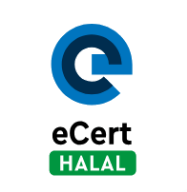Building Halal Trust in Online Halal Trade

In the booming world of halal e-commerce, halal trust is the cornerstone of successful transactions. Both halal businesses and consumers rely on confidence that halal products meet strict halal standards. Yet too often, online platforms fail to provide the clarity needed to uphold this halal trust. Gaps in halal transparency leave buyers uncertain and genuine halal sellers struggling to prove their halal credibility. To build enduring halal trust in online halal trade, we must address six key issues that undermine halal confidence.
1. Halal Certification Status Unknown
One common problem is the lack of clear information on whether a halal product is actually halal-certified. On many online marketplaces, the halal certification status of halal brands is simply unknown. A product might be marketed as “halal” without any details about which halal authority certified it or if the halal certification is still valid. This ambiguity leaves consumers guessing.
A halal business that has gone through proper halal certification might still lose potential sales because shoppers can’t confirm the brand’s halal certified status. To inspire confidence, halal sellers need a way to prominently display their valid halal certification status for all to see.
2. Unverified Halal Claims
Far too many halal products online carry ‘halal claims’ that are unverified. A seller might label a product “halal” in the description or title, but provide no evidence to back up the claim. Without proof—such as a recognized halal certification number or a link to a certifying body’s record—these claims ring hollow.
For consumers, unverified claims create doubt: they have to either take the seller’s word at face value or spend extra time researching. Halal businesses who genuinely follow standards are equally hurt when less scrupulous competitors make unchecked claims. Verifying every halal claim is essential so that the term “halal” retains its integrity in online halal trade.
3. Halal Logos Not Visible
Halal certification logos, usually printed on product packaging, are a quick visual assurance of a product’s halal status. But in online listings, these logos are often not visible. Perhaps the product photos are limited or too low-resolution, or they simply don’t show the part of the packaging with the halal logo. When shoppers cannot spot a halal logo in the images, it adds an extra layer of uncertainty.
A clearly visible halal logo could immediately signal to buyers that the product has been officially halal certified. Halal businesses should ensure that their product images include the halal logo to reinforce halal trust at a glance. If the platform doesn’t support high-quality images, alternative solutions are needed to convey this vital information.
4. Barcodes and QR Codes Can’t Be Scanned Online
Many halal-certified products have barcodes or QR codes on their packaging that can be scanned for halal verification. However, in an online store, customers obviously cannot pick up the product and scan it. The inability to scan codes on a screen means consumers lose an important halal verification tool.
For example, a buyer might normally scan a product’s QR code to confirm its halal certificate details on the halal certifier’s database. Online, unless the website provides an equivalent halal verification link or digital scanning feature, this is impossible. The result is that consumers either proceed without halal verification or abandon the purchase. To maintain halal transparency, online platforms and halal brands need to offer digital alternatives—such as clickable QR code links or halal certificate verification pages—so buyers can easily confirm a product’s halal certification status.
5. Misleading Use of Generic Halal Logos
Another issue eroding halal trust is the use of generic, unofficial “halal” logos that are not tied to any recognized halal certifying authority. These symbols might look reassuring at first glance, but they can mislead consumers.
A proper halal logo should come from a credible halal certification body (for example, JAKIM in Malaysia, MUIS in Singapore, etc.). It may trick well-meaning consumers into believing a product is halal certified when it is not. This practice not only deceives buyers but also undermines legitimate halal-certified businesses. Halal marketplaces must discourage or ban the use of unverified generic logos and instead encourage the display of authentic halal certification verification details.
6. Expired Halal Certificates Overlooked
Halal certifications are time-bound and require renewal. Unfortunately, in the online space, expired halal certificates often go unnoticed. A product that was once genuinely certified halal might still be marketed as halal even after its halal certification has lapsed. If there is no system in place to check halal certificate expiry dates, sellers (intentionally or accidentally) may continue to trade a product with an expired halal certificate. Consumers have almost no way of knowing from the listing alone that a product’s halal certificate has expired, unless they cross-check with official records—an impractical step for most shoppers.
This oversight can severely damage halal trust if discovered after purchase. It’s crucial for halal businesses to keep their halal certification up to date and for online platforms to regularly verify and update halal certificate statuses. Automatically flagging or removing products with expired halal certificates would protect consumers and encourage businesses to renew their halal certifications promptly.
The Way Forward
Halal trade must evolve with halal transparency at its core. That means verified halal logos, up-to-date halal certificates, and digital tools to confirm halal certification status before buying. All six of these issues share a common theme: a lack of halal transparency that undermines halal trust in online halal commerce. Solving them is not just about halal compliance, but about respecting the expectations of a growing base of conscious halal consumers and leveling the playing field for legitimate halal businesses.
The good news is that change is underway. HalalBizCentre (HBC) has actively addressed this halal transparency gap with digital solutions crafted specifically to resolve these long-standing issues. By leveraging modern technology to provide real-time halal certification information, authentic logos, and automated checks for halal certificate validity, HalalBizCentre has developed a halal online marketplace where halal trust is the norm, not an exception. With such innovations, both halal consumers and businesses can finally trade online with full confidence in the halal integrity of every halal brand product.
Visit www.HalalBizCentre.com to discover how we’re shaping the future of digital halal trade.
© Copyright Design by Neu Entity


